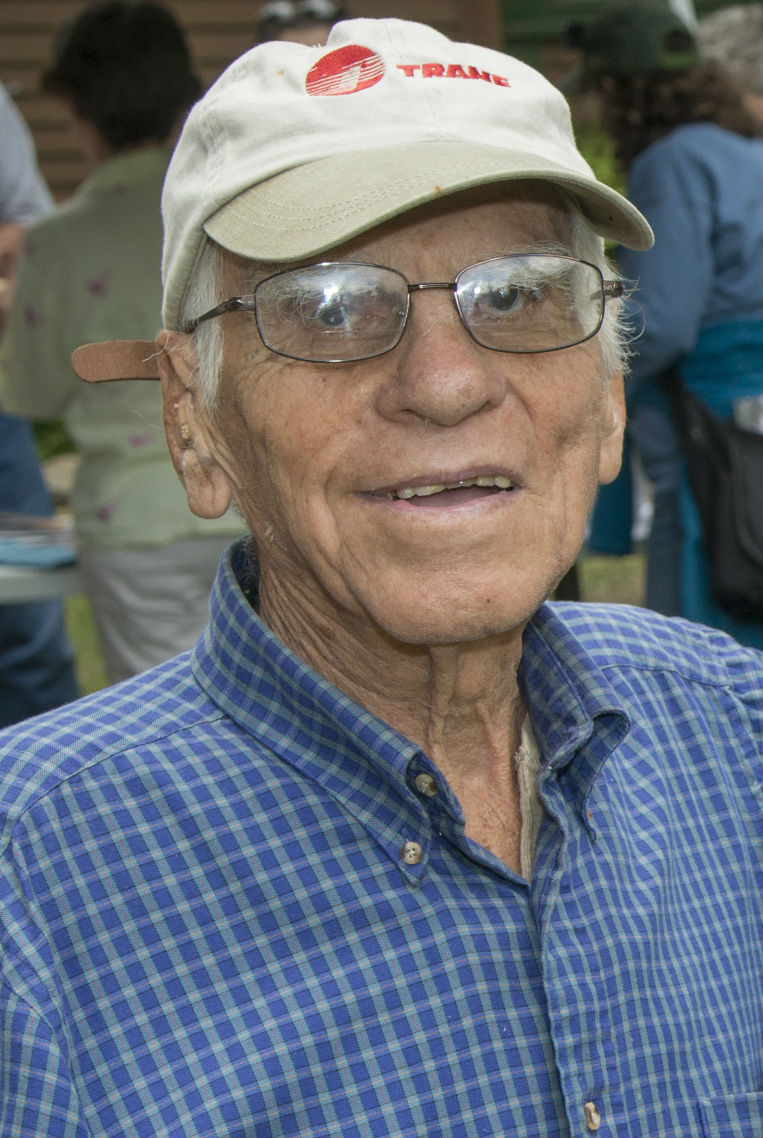Newsletter Detail
 A giant in field biology at SUNY Cortland, Eugene Waldbauer, passed away peacefully this January in Cortland, where he lived with his wife Florence since joining the College faculty in 1956. The contributions he made to what is now the William H. Parks Family Center for Environmental and Outdoor Education cannot be overstated.
A giant in field biology at SUNY Cortland, Eugene Waldbauer, passed away peacefully this January in Cortland, where he lived with his wife Florence since joining the College faculty in 1956. The contributions he made to what is now the William H. Parks Family Center for Environmental and Outdoor Education cannot be overstated.
At the W.H. Parks Family Outdoor Center, Raquette Lake, he pioneered the field biology course in 1961 that continues to this day. Known affectionately as “Turbo” due to the prolific pace he set while hiking the Adirondack trails, he loved sharing his knowledge of nature with students every summer. Often accompanied by his family, Waldbauer spent several weeks each year canoeing, hiking and teaching. This led to his purchase of a cabin near the SUNY Cortland Antlers property after his retirement, where he would continue to gather the family and enjoy the Adirondack summers. He and Florence were frequent bathers at the community beach next to the Casino in recent years, where Waldbauer continued to take in the beauty of the lake he loved so well.
In 1964, Waldbauer joined three other faculty members, John Gustafson, professor emeritus, biological sciences, George McDermott, distinguished service professor emeritus, geography, and Harlan “Gold” Metcalf, on a committee to find a suitable property near Cortland for field study when the College’s expansion absorbed open land adjacent to the campus. Their search led to the purchase of Hoxie Gorge, a 169-acre site 7 miles from campus, which celebrated its 50th anniversary in 2015.
The impact the professor had on his students is exemplified by Doug Pens ’67 in this story about his first trip to the Adirondacks in 1965 with Waldbauer. “There were twenty of us on this climb, as Dr. W. described and showed us so many things. But what he did that was so much more amazing was hike the mountain up and down several times. He would explain things to the lead group, then hike back down and repeat to the stragglers, then back up, and then back down again and again. We were not sure what to be more impressed with, his knowledge or his fitness. Needless to say, we learned!”
When Waldbauer retired in 1993, the College honored his lifetime achievement by naming the Waldbauer Nature Trail at Camp Huntington for him. For years, Waldbauer could be found transplanting wildflower specimens along the trail to make sure students could observe and study them in the wild. The new “Waldbauer Nature Trail” guide (see accompanying article) is a fitting legacy to the man who gave so much of himself to the study of ecology at SUNY Cortland.

